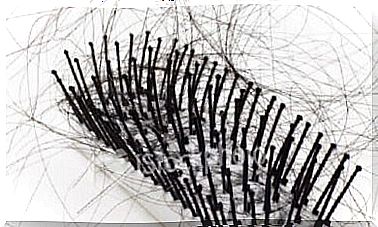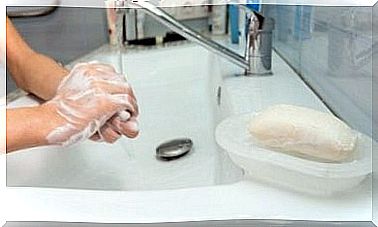Sinusitis In Pregnancy: How To Treat It?

Sinusitis is inflammation of the sinuses located in the holes through which air passes when you breathe. Symptoms include nasal congestion and pain around the eyes, which are particularly annoying if you suffer from sinusitis during pregnancy.
If we add the typical ailments and limitations of gestation, the picture is rather unpleasant for the woman. Here are some tips for treating sinusitis in pregnancy.
What is sinusitis?
This is inflammation of the sinuses. It can be caused by various factors such as allergies, an infection, or other ailments affecting the nose.

As a rule, a distinction is made between sinusitis:
- Acute, lasts about 4 weeks
- Subacute, ranging from 4 to 12 weeks
- Chronic, when it lasts for more than 12 weeks, for months or even years
- Recurring, if it appears several times during the year
The characteristic symptoms are pain around the eyes and cheeks, accompanied by nasal congestion. Other possible symptoms are coughing, fatigue and weakness, fever, and post-nasal discharge.
Diagnosis is made after CT scan and symptom evaluation. Once ascertained, the doctor can administer a treatment based on antibiotics, decongestants and analgesics.
In the case of sinusitis in pregnancy, however, drug treatments are often discarded. L and pregnant women should avoid taking drugs and always be restricted to information the doctor.
Rhinitis in pregnancy
Sinusitis should not be confused with pregnancy or hormonal rhinitis. While the former is inflammation of the sinuses, rhinitis is inflammation of the nasal mucosa. The two pathologies are therefore distinct and must not be confused.
A particular type of rhinitis is called pregnancy or hormonal and occurs only in the gestation phase, and then disappears following childbirth. Symptoms of this disorder include nasal congestion, itching, sneezing and coughing.
The causes are not known, but it does not represent a danger to the pregnant woman or the unborn child. However, it remains an annoying condition that can hinder rest. This, combined with the typical symptoms of pregnancy such as fatigue, nausea and headache, can be very unpleasant for the pregnant woman.
Remedies to treat sinusitis in pregnancy
The pregnant woman should never take medicines on her own initiative. In addition to consulting your doctor, it may be useful to know some tips to calm the annoying symptoms of sinusitis.
In pregnancy it is not recommended to take natural herbal remedies or alternative medicine. The advice given here is not risky for gestation.
Drink lots of fluids

The treatment of sinusitis acts in particular on the symptoms and for this purpose it is useful to maintain proper hydration. During pregnancy, it is recommended that you drink plenty of water and natural juices. By doing this, the nasal secretions will flow more easily, calming the congestion.
Sleeping with a high pillow
The position taken during sleep can sharpen or calm the cough. To reduce the symptoms of sinusitis at night, it is recommended that you sleep on a high pillow that allows you to keep your head elevated. This makes breathing easier and the mucus will flow more easily, reducing coughing and the need to sneeze.
Steam to treat sinusitis in pregnancy
A humidifier can be used at night to clear the nasal passages. Another simple solution is that of fumigations.
Boil some water in a saucepan, remove it from the heat and lean over it, covering your head with a towel, so as to breathe in the steam. In this way you will open the nasal cavity reducing the accumulated phlegm.

Saline solution
To decongest the nasal cavities, we recommend the use of a natural saline solution with which to do nasal washes. Physiological serums available in pharmacies are usually natural, so they are not contraindicated during pregnancy. If you prefer, however, you can prepare your own saline solution by mixing:
- 1 teaspoon (5 g) of iodine-free salt
- A pinch of baking soda
- 0.5 liters of distilled, filtered or boiled water
Nasal patches for sinusitis in pregnancy
To calm the symptoms of sinusitis, nasal patches can also be used. These are small bands that help open the nasal septum thus improving breathing. These patches can be applied before going to sleep to ensure a good rest even during pregnancy.
In addition to following our tips to combat this annoying disorder, remember to follow your doctor’s instructions to the letter. Only a health professional will be able to tell you if you can take any medicines during pregnancy, and which ones.
On the other hand, avoid alternative or herbal remedies, whose ingredients could have contraindications for gestation.









